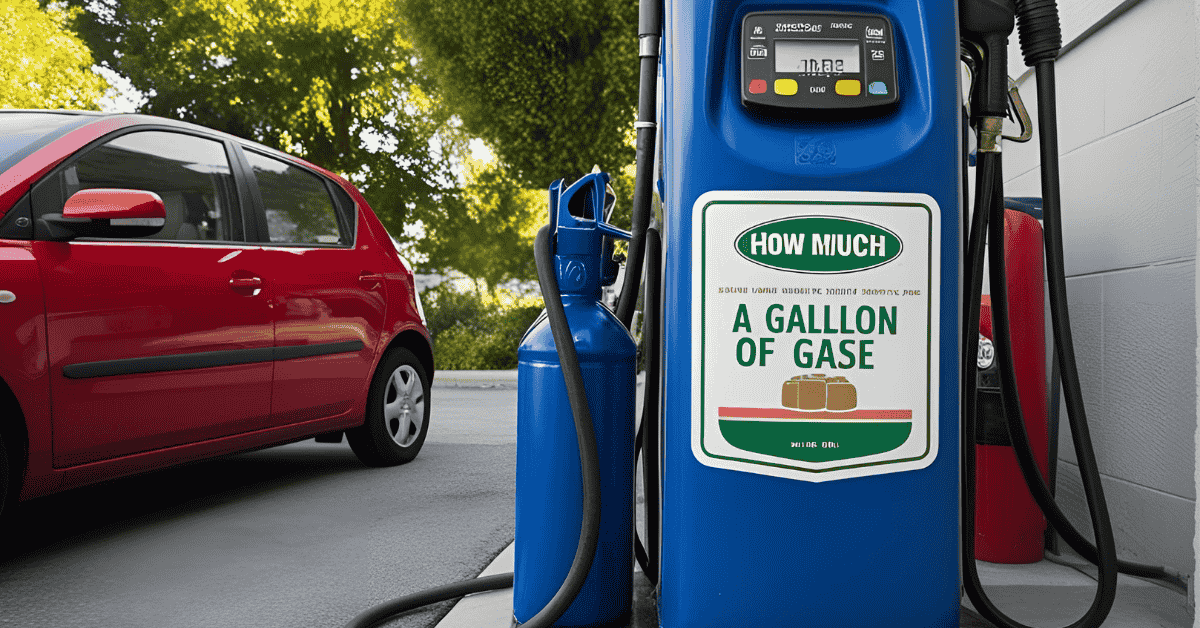How Much Does a Gallon of Gas Weigh?

When you fill up your car, you might wonder how much that fuel actually weighs. A gallon of gasoline weighs about 6 to 6.5 pounds. Knowing this can help you understand more about your vehicle’s performance and fuel consumption.
Factors like temperature and the type of gasoline can affect its weight slightly. Different blends and additives also play a role in this variation. Understanding the weight of gas can be useful, especially if you’re transporting it or considering how it impacts your car’s efficiency.
In this article, you will learn more about why the weight of gasoline matters and how it connects to various aspects of driving and fuel management. This knowledge could change the way you think about filling your tank.
Basics of Gasoline Weight
Gasoline weight is important for understanding fuel efficiency and storage. Knowing how much a gallon of gas weighs helps in various situations such as fueling vehicles or managing storage tanks.
Standard Measurement Units
Gasoline weight is typically measured in pounds per gallon (lbs/gal). In the United States, a gallon of gasoline weighs about 6 to 6.5 pounds.
Here’s a breakdown of weight measurements:
- 1 gallon of gas: 6-6.5 lbs
- 1 liter of gas: approximately 2.2 lbs
These values can vary slightly based on temperature and gasoline formulation. For example, warmer temperatures can lower the density of gasoline, making it weigh less per gallon.
Factors Affecting Gasoline Weight
Several factors can impact the weight of gasoline. The main ones include:
- Temperature: As temperature increases, gasoline expands, which can decrease its density. Cooler temperatures cause it to contract, increasing its density and weight.
- Additives: Different blends of gasoline may include various additives. This can change the weight slightly, as some additives add mass.
- Composition: Gasoline is made of hydrocarbons that can vary in molecular structure. The type and proportion of these hydrocarbons affect overall weight.
Being aware of these factors is crucial for accuracy in fuel measurements.
Practical Considerations
When considering the weight of gasoline, there are practical factors that come into play. These factors can impact fuel efficiency and are important for transportation regulations.
Fuel Efficiency and Weight
The weight of gasoline can affect fuel efficiency. Generally, gasoline weighs about 6 to 6.3 pounds per gallon. If your vehicle carries a heavier load, it may require more fuel to operate.
For example, if a truck carries 100 gallons of gasoline, that adds about 600 pounds. This extra weight can decrease fuel economy because the engine has to work harder. Understanding this can help you plan trips better to maximize fuel use.
Consider using lighter materials for cargo to save on weight. This can enhance the performance of your vehicle and help reduce trips to the gas station.
Regulatory Standards for Transportation
Transportation of gasoline is subject to strict regulations. These standards ensure safety and environmental protection.
You need to know the weight limits set by the Department of Transportation. Different vehicles have different weight limits for carrying fuel.
Additionally, containers must meet safety guidelines. For example, bulk transport vehicles must be marked clearly. They should also have spill kits available in case of an accident.
Staying informed about these standards will help ensure you follow the law while transporting gasoline. Always check your local regulations to stay compliant.
Conclusion
Understanding the weight of gasoline is more than just a matter of curiosity; it plays a role in fuel efficiency, vehicle performance, and even safety regulations. Whether you’re transporting fuel, managing a fleet, or simply concerned about your car’s fuel consumption, knowing how much a gallon of gas weighs helps you make more informed decisions. While factors like temperature, additives, and composition can cause slight variations, the general range of 6 to 6.5 pounds per gallon remains a reliable guide. Keeping this in mind can optimize your driving experience and fuel management.






